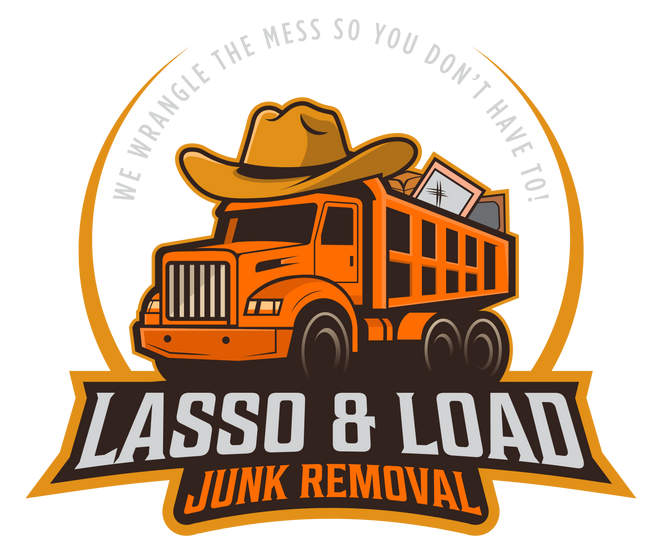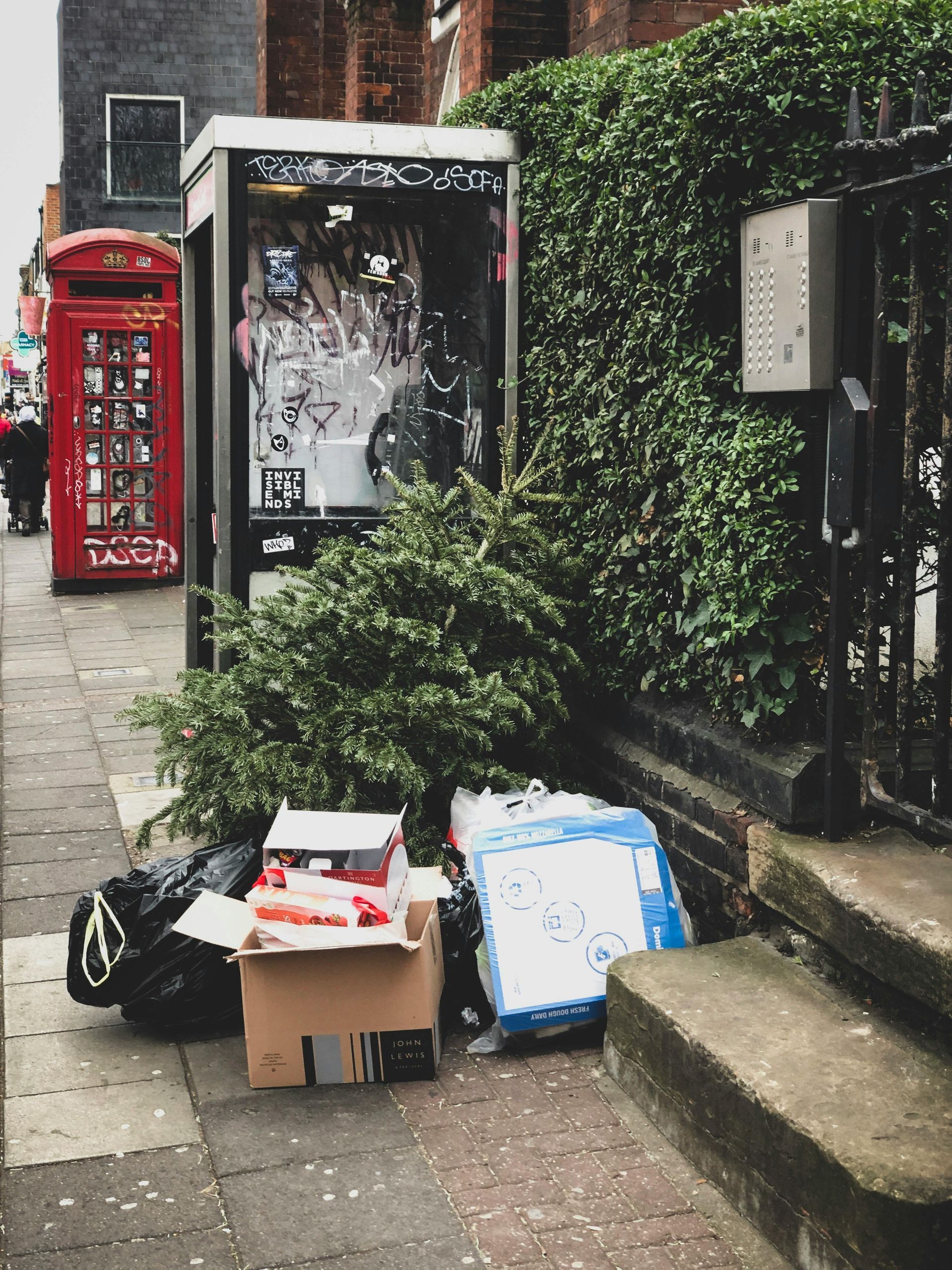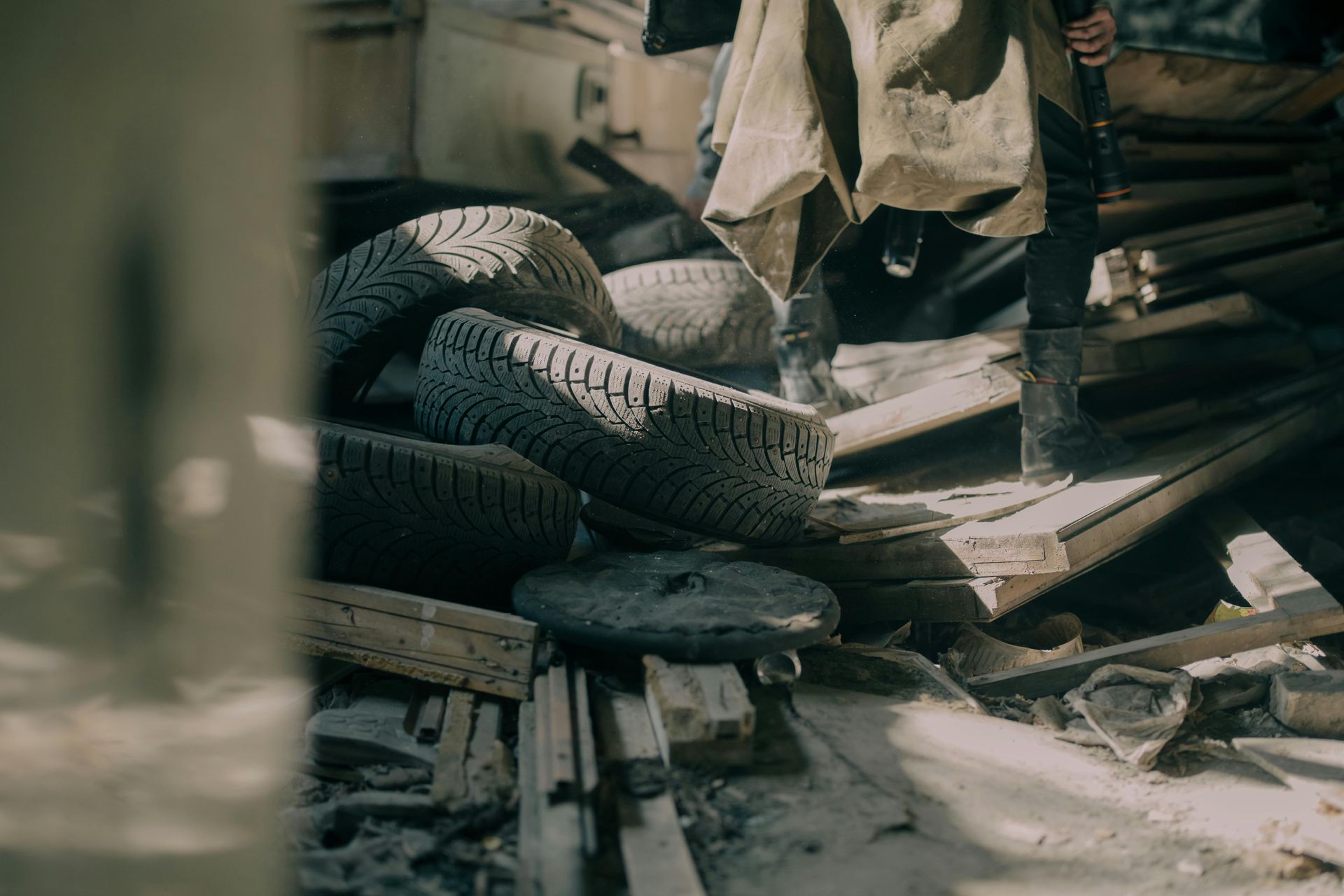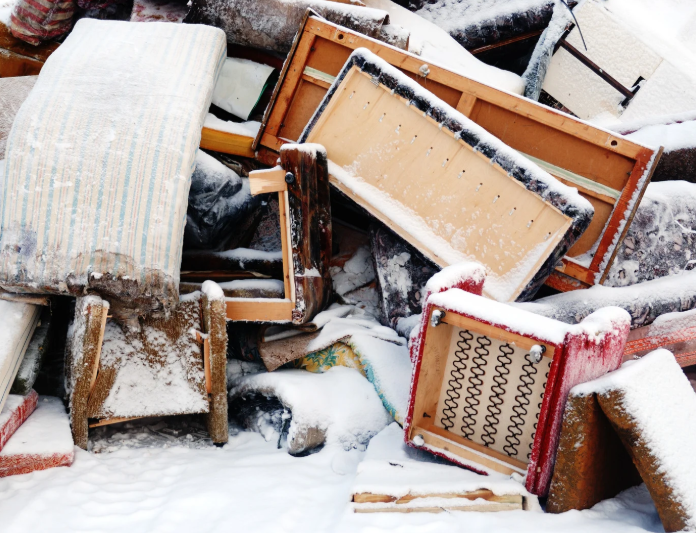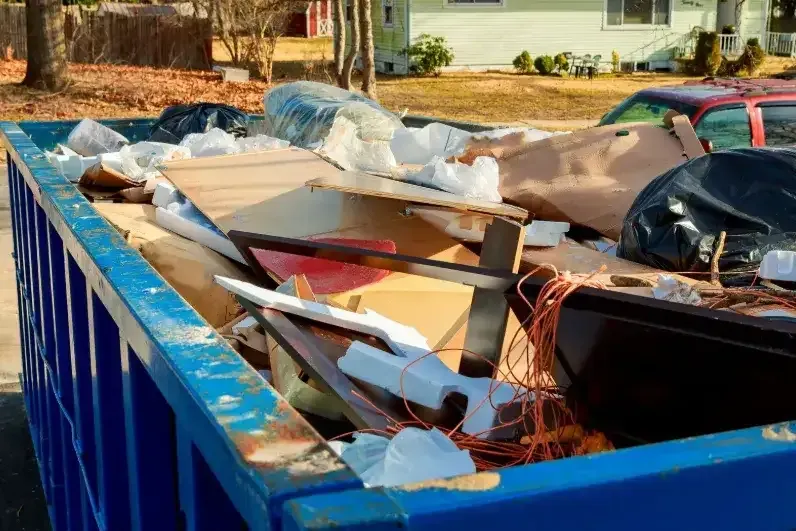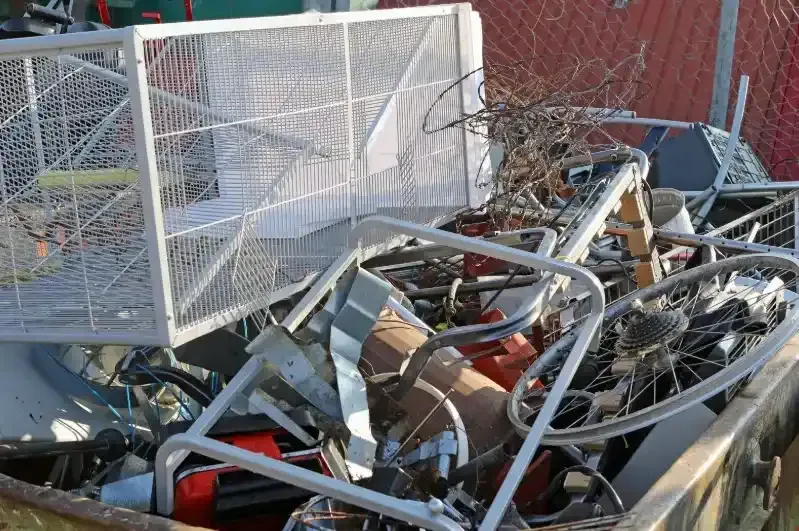How to Safely Dispose of Commercial Construction Debris
Commercial construction debris doesn’t disappear once the job is done. In fact, the real challenge begins when the final wall goes up or the concrete dries. Whether you're running a renovation project, overseeing new commercial construction, or cleaning up after demolition, debris disposal isn't just an afterthought—it’s a serious responsibility. The materials left behind can range from wood and drywall to concrete, metal, tiles, bricks, packaging materials, insulation, and more. Getting rid of all this waste safely and legally requires planning, execution, and a sharp understanding of disposal protocols. Done right, it protects workers, avoids fines, keeps your site efficient, and demonstrates environmental responsibility. Improper disposal doesn’t just result in clutter—it can lead to safety hazards, regulatory issues, and wasted resources. That’s why understanding how to handle construction waste the smart way isn’t optional.
Recognize the Hazards Lurking in Construction Debris
Not all debris is created equal. While some materials like untreated wood may seem harmless, others—like broken glass, sharp metal, nails, or even asbestos—pose serious risks. Even seemingly benign substances, like dust from drywall or insulation, can be hazardous when inhaled over time. The first step toward safe disposal is identifying what you’re dealing with.
When you recognize the risk early, you can plan accordingly. Assigning trained professionals to handle potentially dangerous items not only avoids accidents but keeps your site compliant with OSHA and local regulations. Ignoring the specifics of your waste type is one of the fastest ways to turn a cleanup job into a legal mess or health hazard.
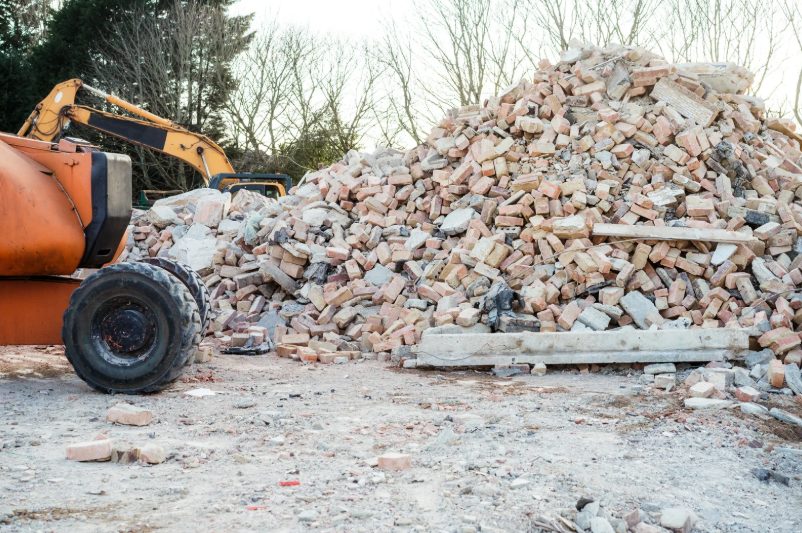
Separate Materials for Better Disposal and Recycling Options
Construction debris is often a mix of recyclable and non-recyclable materials. Mixing everything together might seem like a time-saver in the short term, but it complicates the disposal process later. Smart job sites operate with a waste separation system from the start. Wood, concrete, metal, and cardboard should all be categorized separately. Not only does this make hauling easier, but it also opens the door for more sustainable disposal options.
When sorted correctly, many of these materials can avoid the landfill entirely. Concrete can be crushed and reused. Metal scraps can be recycled for new uses. Even certain types of drywall or insulation can be processed for recovery.
Follow Local Disposal Regulations to Avoid Costly Mistakes
Every city or county has its own set of rules when it comes to commercial waste disposal. What might be legal in one area can be strictly forbidden just a few miles away. Regulations around hazardous materials, recycling standards, and dumping fees vary, and ignoring them can result in hefty fines or even criminal charges in some cases. Construction businesses must stay informed about waste management laws specific to their worksite.
That means knowing whether certain debris must be taken to a certified transfer station, understanding how to dispose of chemical containers or treated lumber, and obtaining proper documentation for hazardous material handling. Working with a local disposal expert or hauling company that knows the ins and outs of Gwinnett County ordinances, for example, ensures you don’t get tripped up by red tape.
Use Proper Protective Equipment and Tools for Cleanup
The cleanup process is often when most jobsite injuries happen. Disposing of construction debris involves heavy lifting, sharp materials, slippery surfaces, and occasionally toxic substances. Anyone involved in the debris handling process should wear the right personal protective equipment (PPE)—this includes gloves, boots with reinforced toes, high-visibility vests, dust masks, and eye protection.
Along with PPE, using the right tools—such as wheelbarrows, industrial trash bins, and carts—reduces the chance of back injuries or mishandling. Avoid shortcuts like overloading containers or carrying oversized items alone. A safe and well-equipped crew can get more done in less time without putting themselves or others at risk.
Schedule Routine Cleanups Throughout the Project
Letting debris accumulate until the very end of a job is one of the worst habits in commercial construction. Not only does it create clutter that interferes with workflow, but it also introduces hazards that increase the risk of injuries. To stay ahead of the mess, integrate routine cleanups into your construction timeline.
Regular cleanups also allow you to spot issues before they spiral. If containers are overflowing or if a new waste stream appears unexpectedly—like the arrival of large amounts of tiling scrap—it's better to address it mid-project than scramble for solutions once deadlines loom.
Rent Dumpsters and Bins Sized for Your Project
Construction waste adds up fast, and relying on small containers or last-minute pickups will slow you down. Renting large, durable dumpsters designed for commercial construction waste is a game-changer. These containers are built to handle heavy materials like concrete and roofing debris, and they come in a range of sizes depending on the scale of your project.
Choosing the right dumpster size isn’t just about convenience—it can affect cost and compliance too. Overloaded bins can attract penalties, while undersized ones require more frequent pickups. A professional hauling service can assess your needs, recommend appropriate containers, and manage disposal efficiently without you lifting a finger.
Avoid Illegal Dumping at All Costs
Illegally dumping construction debris in unauthorized locations may seem like a quick fix when deadlines are tight, but it’s one of the riskiest moves a business can make. Local governments crack down hard on improper disposal, especially when it involves toxic materials or large-scale dumping. If you’re caught, you’ll likely face steep penalties and potential damage to your reputation—particularly in tight-knit communities where word travels fast.
Instead, rely on licensed hauling providers who follow proper disposal procedures and drop waste off at certified facilities. They know where each material should go, whether it’s the landfill, the recycling center, or a specialized disposal site. Doing things the right way today saves you a world of trouble tomorrow.
Consider Donating Reusable Construction Materials
Not every discarded material is trash. Old cabinets, doors, light fixtures, and even flooring materials can be reused or repurposed—especially if they’re still in decent condition. Organizations like Habitat for Humanity and local building supply nonprofits accept these types of donations and put them to good use. By donating instead of dumping, you keep usable items out of the landfill and provide resources to others who need them.
It’s a small move that makes a big impact—socially and environmentally. Plus, it’s often tax-deductible and can reduce your waste hauling costs. Look at what you’re tossing before you toss it. There might be value left in that pile of “junk.”
Partner With a Professional Debris Removal Service
Even if you have the manpower to do it yourself, that doesn’t mean you should. Professional debris removal services are trained, insured, and equipped to handle heavy-duty cleanup jobs fast. They know how to handle awkward or bulky items, sort materials correctly, load containers safely, and transport everything to the proper facilities. They also remove the logistical headache of coordinating pickups and navigating local regulations.
Bringing in a team like this also frees up your staff to focus on what they do best—construction. Rather than wasting time managing waste, let the pros handle it while you keep the build moving forward.
Protect the Environment Through Sustainable Practices
Construction waste accounts for a significant portion of landfill overflow, and reducing that impact is a growing responsibility for today’s builders. Sustainable disposal doesn’t just mean recycling—it’s about being intentional from the start. Choose materials with a lower environmental footprint. Design with efficiency in mind to reduce off-cuts. And when it’s time to clear the site, prioritize reuse, recovery, and recycling.
Doing your part for the environment doesn’t have to slow you down. In fact, it can often streamline your processes and improve project outcomes. When everyone on your team understands that debris isn’t just waste—but a resource—you're on the path to more responsible building practices.
Keep Your Construction Site Safe and Clutter-Free
Messy worksites are a breeding ground for accidents, delays, and miscommunications. Tools get lost under piles of debris. Workers trip over boards and nails. Vehicles can’t maneuver safely through cluttered zones. Cleanliness isn’t just aesthetic—it’s essential for productivity and safety.
Make debris removal a consistent priority on your construction checklist. Treat it with the same urgency as any other part of the job. A clean site not only improves morale and keeps people safe—it also leaves a good impression on clients, inspectors, and future tenants.
Be Prepared for Hazardous Waste Disposal Procedures
In commercial construction, hazardous waste doesn’t always announce itself with warning labels. Paints, solvents, adhesives, treated woods, and even old light fixtures can all contain elements that require special handling. Simply tossing them in a bin risks environmental contamination and regulatory violations.
Working with a waste removal company that understands how to identify and dispose of hazardous materials safely is key. They can separate these items properly, label them for transfer, and make sure they reach approved facilities for treatment. Don’t take chances with substances you’re not fully familiar with—leave hazardous waste disposal to those with the training and experience to handle it.
Conclusion
Efficient and responsible disposal of commercial construction debris isn’t just a minor task to check off—it’s a cornerstone of a successful, safe, and compliant project. Every step, from recognizing hazardous materials and sorting recyclables to adhering to local regulations, plays a pivotal role in reducing risk and improving workflow. It’s not just about tidiness; it’s about protecting your crew, meeting project deadlines, avoiding costly penalties, and showcasing your commitment to sustainability and professionalism.
If you’re seeking a reliable, skilled team to manage your construction cleanup, turn to Lasso & Load Junk Removal. Proudly serving Gwinnett County, they bring hands-on experience and an eco-conscious approach to every job site. Whether it’s heavy concrete, scrap wood, or complex materials, they’ve got the tools and knowledge to handle it all. Call 404-227-2017 or email Lauren.renwickk@gmail.com to schedule a tailored debris removal solution that puts safety, speed, and compliance first.
